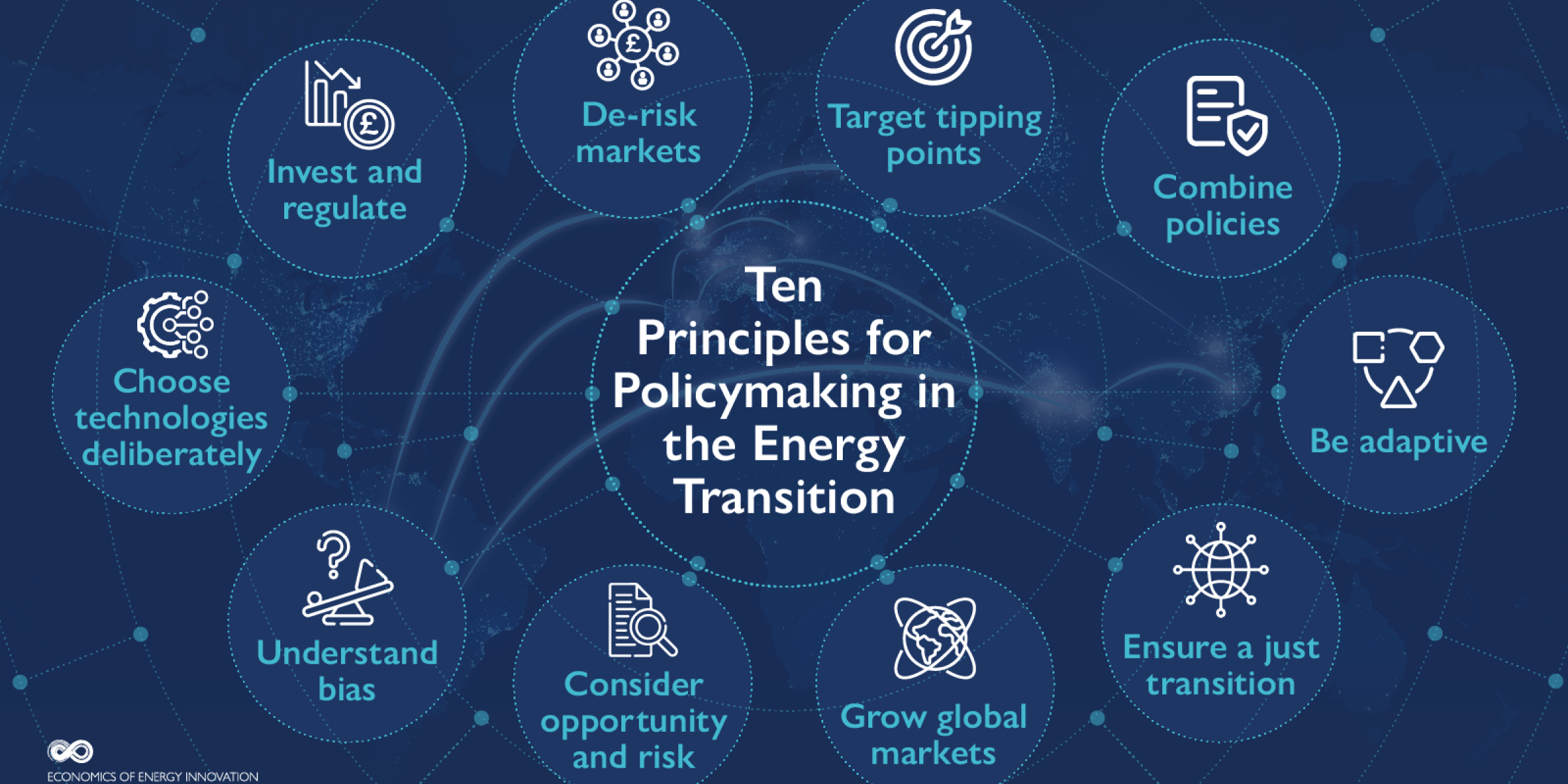The most outstanding successes so far in low carbon transitions in China, India, Brazil, and Europe were achieved by policies implemented despite, not because of, dominant economic analysis and advice. That was the striking finding of a report released by the Economics of Energy Innovation and System Transition project at COP26. Now the same team launched a new report, led by C-EENRG Director Professor Laura Diaz Anadon, C-EENRG fellow Dr Cristina Peñasco, and Director of Global Sustainability Institute at Anglia Ruskin University, Professor Aled Jones, which outlines 'Ten Principles for Policy Making in the Energy Transition'. Based on detailed empirical evidence, these principles overturn conventional wisdom and suggest a new way forward that can help countries deliver the Breakthrough Agenda, and accelerate innovation, job-creation, and cost reduction in the shift from fossil fuels to clean technologies.
The EEIST team will present the report at COP27 at a side event in the UK Pavilion (at stand 21 in Area B of the Blue Zone) on Friday, 11 November, from 13:15 – 14:15 local time (11:15 UK, 08:15 Rio, 16:45 Delhi, 06:15 New York). The event, titled ‘How to replicate the world’s greatest successes in low-carbon transitions’ will be livestreamed. You can join the livestream on the EEIST website or directly via the video link below.

